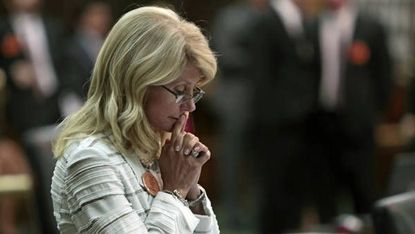
According to a new report by the Guttmacher Institute, 2013 was a tough year for abortion rights. More abortion restrictions were enacted between 2011 and 2013 than in the entire previous decade. From 2001-2010, a total of 189 restrictions were enacted in the United States. From 2011-2013, a total of 205 restrictions were enacted. Seventy of those restrictions occurred in 2013 alone.
The institute classifies restrictions into four categories: those that impact abortion providers, those that limit insurance coverage of abortions, those that ban abortions at 20 weeks, and those that limit medication abortions.
The Huffington Post's Laura Bassett wrote, "The number of states considered 'hostile' to abortion rights, defined by the Guttmacher Institute as having at least four kinds of major abortion restrictions on the books, has also more than doubled since the year 2000, from 13 states to 27." The Huffington Post's infographic below shows the dramatic shift.
Infographic by The Huffington Post's Alissa Scheller
The report pointed to four states in particular for the 2013 surge: Arkansas, North Carolina, North Dakota, and Texas. The latter two states together passed 13 restrictions. The bill that Texas gubernatorial candidate Wendy Davis filibustered, but that eventually passed, comes to mind. The legislation criminalized abortions after 20 weeks and imposed harsh regulations on abortion providers, like admitting privileges from local hospitals. According to Al Jazeera America, one-third of the abortion clinics in the state shut their doors when the law was enacted in November 2013.
Abortion activists responded to the Guttmacher Institute's report with concern. Cecile Richards, President of Planned Parenthood Action Fund, called for new leadership.
"After a record outpouring of opposition to these measures from the Deep South to the heart of the Midwest, it is crystal clear that women and men in states across the country need new leaders who value women's health," she said in a statement."This year, Planned Parenthood Action Fund and Planned Parenthood Votes will be working to change the face of leadership in key states in order to ensure that a woman's access to health care doesn't depend on her zip code."
Stay In The Know
Marie Claire email subscribers get intel on fashion and beauty trends, hot-off-the-press celebrity news, and more. Sign up here.
-
 Olivia Rodrigo Finds the Perfect Spring Dresses at Reformation
Olivia Rodrigo Finds the Perfect Spring Dresses at ReformationShe's worn the brand twice in the past week.
By Julia Marzovilla Published
-
 Curiously, Just as Meghan Markle Sends Samples of Her New Strawberry Jam Out, the Buckingham Palace Shop Starts Promoting Its Own Strawberry Jam on Social Media
Curiously, Just as Meghan Markle Sends Samples of Her New Strawberry Jam Out, the Buckingham Palace Shop Starts Promoting Its Own Strawberry Jam on Social MediaThe clip promoting the Buckingham Palace Shop’s product—we cannot make this up—is set to Mozart’s “Dissonance Quartet.”
By Rachel Burchfield Published
-
 Zendaya's Latest 'Challengers' Serve Is Nearly a Century Old
Zendaya's Latest 'Challengers' Serve Is Nearly a Century OldThe 1930s-era dress may have been pulled months ago.
By Halie LeSavage Published
-
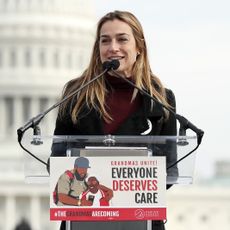 What's the Holdup in Biden's Push for Paid Leave?
What's the Holdup in Biden's Push for Paid Leave?The president is proposing $325 billion to fund paid family leave—the strongest budget proposal in history—and pushing for free universal pre-K nationwide. But he faces opposition.
By Dawn Huckelbridge Published
-
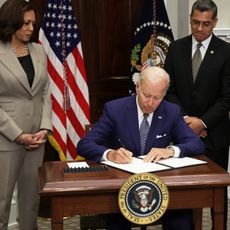 Breaking Down President Biden’s New Executive Order on Abortion Rights
Breaking Down President Biden’s New Executive Order on Abortion Rights“We feel really strongly, particularly given the tremendous amount of legal chaos that has ensued since this decision, that it’s incumbent on us to be careful.”
By Lorena O'Neil Last updated
-
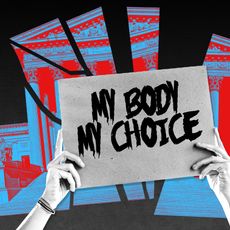 14 Abortion Rights Organizations Accepting Donations to Support Their Fight
14 Abortion Rights Organizations Accepting Donations to Support Their Fight'Roe' is no longer the law of the land, but these organizations won't stop fighting.
By Gabrielle Ulubay Published
-
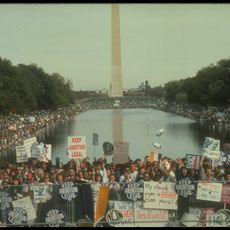 Roe Is Gone. We Have to Keep Fighting.
Roe Is Gone. We Have to Keep Fighting.Democracy always offers a path forward even when we feel thrust into the past.
By Beth Silvers and Sarah Stewart Holland, hosts of Pantsuit Politics Podcast Published
-
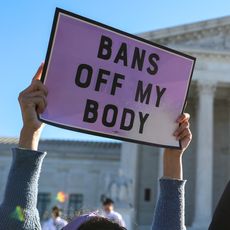 The Supreme Court Is Hearing Arguments in a Case That Could Overturn 'Roe v. Wade'
The Supreme Court Is Hearing Arguments in a Case That Could Overturn 'Roe v. Wade''Dobbs v. Jackson Women's Health Organization' is the most consequential abortion rights case in decades.
By Rachel Epstein Published
-
 For Teachers, Going to Work Can Mean Life or Death
For Teachers, Going to Work Can Mean Life or DeathStefanie Minguell, a COVID survivor and second grade teacher in Florida's Broward County, almost died of COVID-19 and is immunocomprised. When she teaches in the classroom, she’s forced to choose between her health and her students.
By Megan DiTrolio Published
-
 Periods Don’t Stop for Pandemics—And Neither Have Our Nation’s Moms
Periods Don’t Stop for Pandemics—And Neither Have Our Nation’s MomsPolicies touted in the $3.5 trillion budget plan and other Congressional bills are missing a core component of maternal well-being: menstrual access and health.
By Christy Turlington Burns Published
-
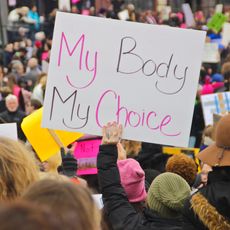 Your Abortion Questions, Answered
Your Abortion Questions, AnsweredHere, MC debunks common abortion myths you may be increasingly hearing since Texas' near-total abortion ban went into effect.
By Rachel Epstein Published